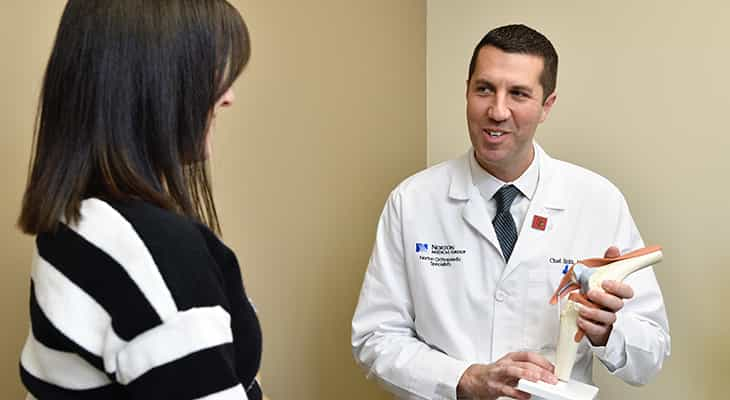
If you have experienced joint pain due to arthritis, you may be wondering if you need a knee or hip replacement. When considering a joint replacement surgery, there are some ways to determine if you are ready to talk to your orthopedic provider.
Chad E. Smith, MD, orthopedic surgeon at the Norton Orthopedic Institute, suggests thinking about the following three factors:
Pain
Does hip or knee pain come and go? Does it occur only during intense activity? Or is it constant and interferes with everyday life?
If the pain comes and goes, you may not be ready for surgery. The good news: There are some non-surgical ways to get relief. These may include taking nonsteroidal anti-inflammatory drugs (NSAIDs), steroid injections, or physical therapy.
Age and activity
Then think about your age and activity level. If you are active and would like to stay active for many years, a hip or knee replacement may be possible. Surgeons perform joint replacements on younger patients than in the past, however, surgery will not normally be considered until age 50. In addition, unless X-rays show moderate to advanced arthritis in the knee or hip, non-surgical treatment will be recommended.
Weight and health in general
Finally, how is the rest of your health, including your weight? Carrying extra weight is an important factor in knee or hip pain. Surgeons typically do not perform knee replacements in patients with a body mass index greater than 40, as they increase complications during and after surgery.
However, there are physiotherapy programs designed to help you lose weight, while also supporting and aiming to improve painful joint. Your healthcare provider can help you find a physical therapy or weight loss program that fits your needs.
Do you have heart disease or diabetes? Is your diabetes controlled with an adequate level of hemoglobin A1C? Chronic medical conditions need to be optimized before surgery.
You will also want to make sure you are mentally prepared for a couple of difficult weeks after surgery.
Can pain be overcome during physiotherapy while working to strengthen and move the new joint.